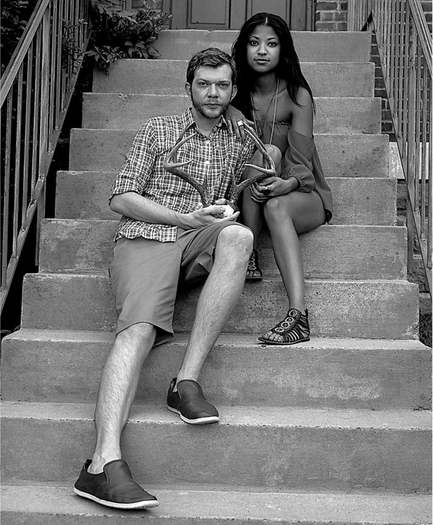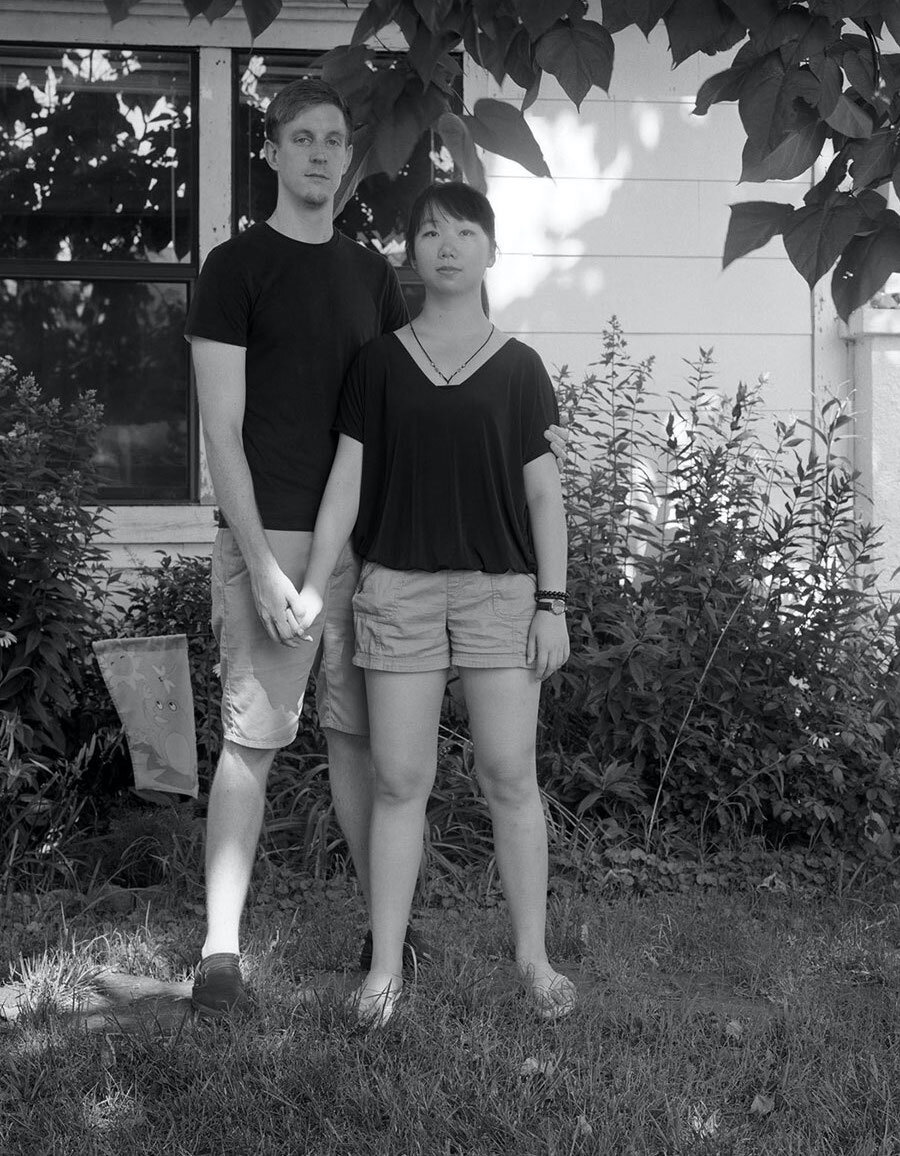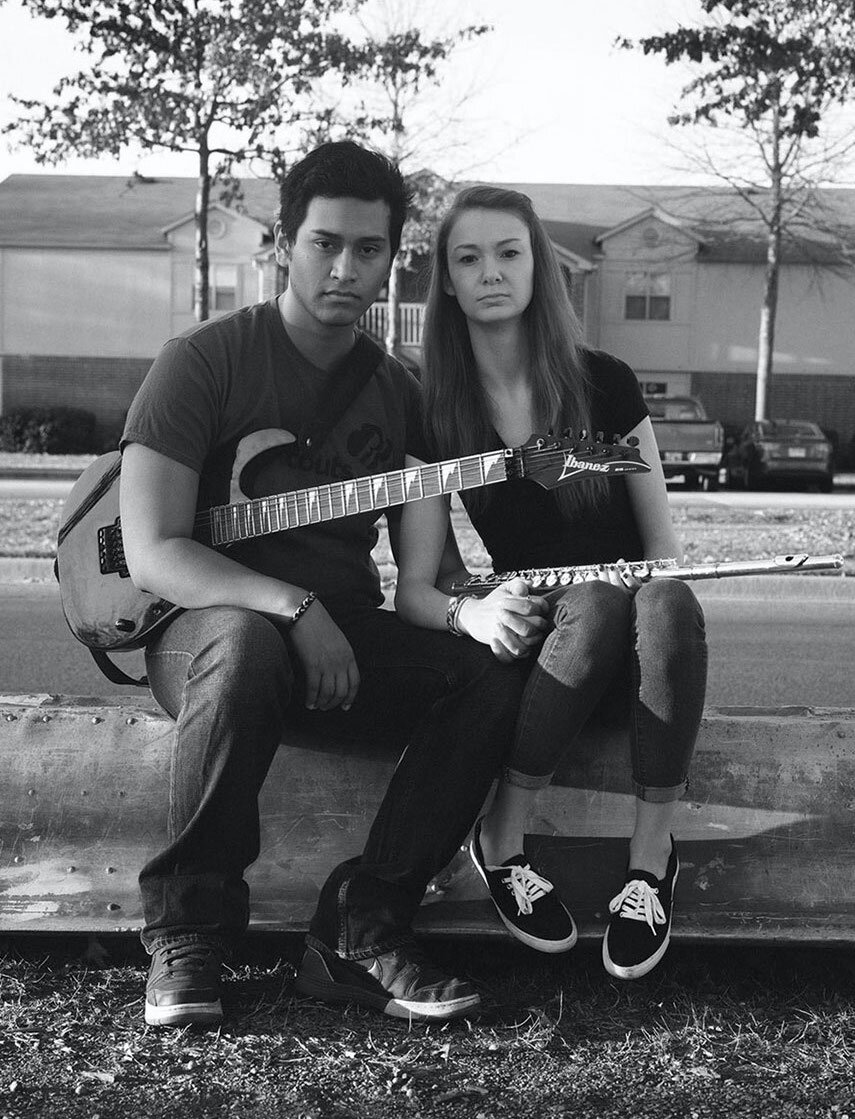Pictures from Donna Pinkley from the series “Sticks and Stones”
When you start a life as an expat, you are moved by curiosity, probably a drive to discover what is happening outside of your world and a thirst for challenges, new cultures, new ways of thinking, new working and living experiences.
It is at the same time very exciting and scary, and if you manage to overcome the first difficult steps you might even find yourself emotionally engaged with someone from a different culture. As an expat you meet people of different origins and get more accustomed to intercultural couples as they are probably more common than back home.
There are different conditions that make us fall in love, usually we don’t choose logically; after the initial passion we get to know the other more and that’s when we face the first difficulties.
According to researchers, all couples face similar issues, but for intercultural couples, cultural aspects can crop up and create even more challenges. There is a need for extra attention in taking the time to know the other, as well as to understand how our upbringing can influence the way we relate to each other. Depending on the country where you grew up, you may have very different expectations related to your partner’s role: culture, religion and society shape an ideal of what to expect from your partner and it is sometimes difficult to be aware of that until you start going through different stages of your relationship such as living together, getting married or creating a family.
Romeo is a European man married to an Asian wife, he has two children, his wife works in a shop and since he lost his job and struggles finding a new one, their relationship has worsened. His wife thinks he should be the financial provider. She is so upset, she struggles to have a positive attitude towards him, she’s unable tot value the time her husband now invests on their children and his role at home. As his wife thinks poorly about him it is also harder for Romeo to value what he is doing and develop the self-esteem he needs to confidently job hunt.
If gender role expectations are a challenge, different speaking styles can also contribute to worsening the communication in a couple.
Khanitta from Thailand often smiles when her husband from America is unhappy and complaining about something. When she smiles, her husband thinks she is not taking him seriously, and this makes him really angry. On the other hand, Khanitta feels aggressed when he scolds her, she feels embarrassed and she doesn’t know what to answer: her smile is a sign of distress, a way to ease the tension and show kindness to her husband.
How we verbalise our feelings or how we communicate our needs can be very different according to education, culture and upbringing. We can value direct, straightforward communication, as in the case of the American husband or we may prefer to indirectly hint a message to be more polite, as in in Khanitta’s case. In some cultures it is appropriate to raise your voice to claim your rights, in others if you do so you “lose face”. Verbalising feelings and needs is not easy, and when you also need to take into account your partner’s extended family, you might find yourself in another difficult situation to read and to handle.
From a family-centred society model, to an individual-centred one, the role of the extended family can be very different and the expectation about the involvement of relatives in a marriage can trigger heavy conflicts.
Giacomo felt really weird when he went on his honeymoon accompanied by his parents in law, he was ready to start a more intimate relationship with his wife and he felt odd dealing with her family as well. On the other hand, the parents of his new wife were a bit upset because Giacomo’s parents were not involved during the wedding and not even during the honeymoon.
When the couple becomes a family and there are children involved, there are once again different expectations on the involvement of the extended family and their own gender role expectations.
Luke married Phone from Laos, when they had their firstborn, according to the traditional practice after delivery, Phone spent almost one month at home doing herbal sauna, sleeping and eating with her daughter. Her mother and sisters were taking care of her and the new-born, while Luke felt totally excluded. He wanted to have a role close to his wife and daughter, he wanted to create his nuclear family, while his wife and her family never considered his involvement in the care of the child.
Raising a child is a job we learn by doing and is very often a moment when it is difficult to integrate differences.
Sophia is a teenager third culture kid, she feels under stress for her studies, she starts to retire in her room, stays awake at night to study, stops eating regularly, her thoughts start to be very negative and her mood becomes delusional. Her parents start to fight as her mother would like to handle the situation according to her beliefs, through prayers and rituals involving traditional healers. On the other hand, her father is very dismissive of this approach and wants to take her to a doctor and to see a psychologist. It is very difficult for both of them to understand each other’s reasons and to find a common solution to support their daughter.
When raising children, the differences in the couple become more evident and it can be challenging to build common grounds to take what there is of positive from both approaches and to be empathic towards different ways to handling difficulties.
There are challenges when we get into a relationship, even more so when there are cultural differences, nevertheless there are some skills and coping mechanisms that can support the couple in building a successful relationship. As different gender role expectations can generate conflict and misunderstanding, a certain flexibility to challenge your own beliefs is a positive coping skill that supports couples to succeed. To be able to challenge your beliefs and perspectives, it is important to learn and respect each other’s culture to develop a healthier relationship. Through knowledge and appreciation for the cultural background of your partner it is easier to read differences, to understand them, and if not to fully accept them, at least to integrate them.
Learning a different language, trying new dishes, participating to traditional festivities, are all ways of showing interest in your partner and build a respectful and balanced relationship. With more knowledge it is easier to recognize similarities in your core value system and value those similarities more than the differences. It is about cultural deference, the ability to comply with different traditions. It’s not about losing your cultural upbringing, it is about growing your identity through curiosity and respect for the other.
It might seem strange, but humour is one of the best coping skills; it is the capacity to add fun to the relationship, to defuse tension and learn to decrease differences and prioritise what is important for the couple. It doesn’t mean making fun of the other, it means being able to laugh about ourselves and our reactions, to stop a possible situation of conflict and transform it into an opportunity to bond. It’s worth emphasising that sarcasm is not humour, as this is a destructive and aggressive way to communicate, while humour is about laughing together about parts of us, about our reactions, our culture and traditions.
There are several ways to be in a relationship; if gender role flexibility, cultural deference, recognition of similarities, general appreciation of other cultures and humour are a good start, there is an ultimate coping mechanism shown by successful intercultural couples: cultural reframing. This goes beyond emphasizing similarities and accepting differences, it is about taking advantage of the best part of both cultures, to develop a common ground, a so-called “relational identity”. Successful couples can “reframe” their cultural stressors and differences creating a new set of values, rules and traditions, a sort of “third culture” of the couple.
Pictures from Donna Pinkley from the series “Sticks and Stones”





